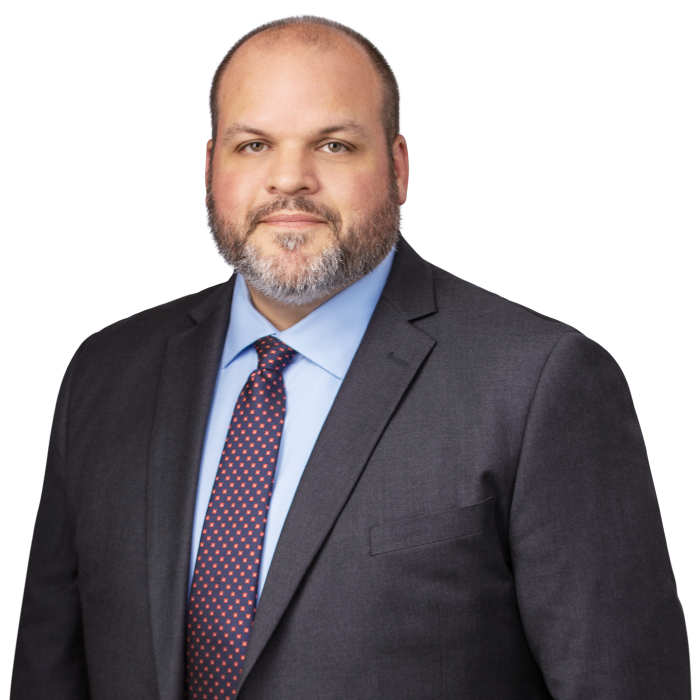
Expert Witnesses: Effective Questioning
Litigator Scott Ditfurth Shares Best Practices in Riverside Lawyer
By Scott Ditfurth
You have completed your discovery, you have designated your expert witnesses, and you have even deposed the other side’s experts. Now what? One of the tougher skills in conducting trials is being able to effectively conduct a direct examination of your expert, as well as successfully conduct a cross examination of the other side’s expert. This article provides suggestions or guidelines in conducting trial examinations for experts.
Direct Examination of Your Expert
Provide An Easy and Understandable Roadmap
This is often harder than it sounds. You want to present why your expert is qualified, explain what those opinions are, and the jury can easily understand how she/he reached those opinions in a manner that can be easily understood by the jury.
Start by preparing an outline for the testimony. An outline, as opposed to a script, provides for a more natural discussion about your expert’s qualifications, the work the expert performed, and the opinions she/he reached.
Next, it is important to establish that your expert is qualified to render opinions on the topics at issue. Often experts have a broader scope of expertise than what they are being asked about at trial. In going through the expert’s curriculum vitae, focus on topic specific achievements, awards and training in order to establish credibility for your expert.
Next, you should provide the appropriate background to set up the opinions your expert reached. In doing this, you elicit from your expert the necessary research, investigation, in and factual background your expert conducted in coming up with their opinions. This will allow the jurors to better understand the work your expert did in reaching her/his opinions.
Finally, your expert should provide her/his ultimate opinion on the matter.
Use Plain Language And Simple Terms
Experts have superior knowledge on the topics they are providing testimony for. No matter how believable your expert is, if the jury does not understand the opinions being expressed, the testimony will all be for naught. This can be achieved by having the attorney use short, concise questions, and having the expert use real world analogies to ensure the jury understands the opinions being expressed. Avoid using legal jargon or complex language.
Provide A Summary
At the end of your direct exam of the witness, it is important to tie everything together and leave the jury with an understanding of why your expert is qualified, what your expert did to reach their opinions, what their opinions are, and why they should be believed. This can be achieved by ending the examination with two or three major points from the opinions in order to leave the jury with an overview of what the expert has said.
Cross Examination of an Expert
Develop a Theory
Before you even start your examination, you should develop a theory of why the expert’s opinions cannot be trusted or are otherwise not credible. Is the expert mistaken in her/his testimony? Is the expert relying on faulty facts? After developing a theme, your cross examination can build off of that theme.
Keep the Expert Honest
The framework for an effective cross examination happens long before the examination. It is important that the attorney flush out and box in the expert regarding her/ his opinions during deposition. This includes asking the expert during the deposition the exact opinions that she/he intends to give at trial, as well as the basis for those opinions. Thereafter, the cross examination at trial effectively becomes keeping the expert honest to her/his deposition.
Ask the expert leading questions drawn from the deposition that elicit only a yes or no response. Do not allow the expert to provide opinion testimony by asking open-ended questions that can result in the expert presenting to the jury her/his expertise and credibility on the subject. Additionally, ask the judge to strike any non-responsive answers and do not ask questions that you are not able to impeach the expert on. Again, keep the expert honest.
It is also important to stick to a handful of points. It is not necessary to refute every single thing that comes out of an expert’s mouth. Rather, select a handful of points that drive home the theme you selected and stick to those points. While the expert may have superior knowledge on the topic, you have superior knowledge of your case.
Challenging Foundational Facts
An expert witness’s credibility diminishes if it can be shown that the expert relied on inaccurate facts. An expert’s opinion is only as good as the facts she/he relied on. If the facts cannot be believed, then the expert’s opinion cannot either. One way to challenge foundational facts is to look for omissions or inconsistencies in the expert’s reports or other records. Such omissions or inconsistencies may undercut the expert’s opinion.
Know When to Stop
Always try to end on a strong and clear note. Avoid asking wrap up questions that allows the expert to further explain her/his opinion or offer new information.
Related Article: Rooms with a View: Cross-Examining Experts in Depositions
This article originally appeared in the May 2019 edition of Riverside Lawyer magazine, a publication of the Riverside County Bar Association. Reprinted with permission.


